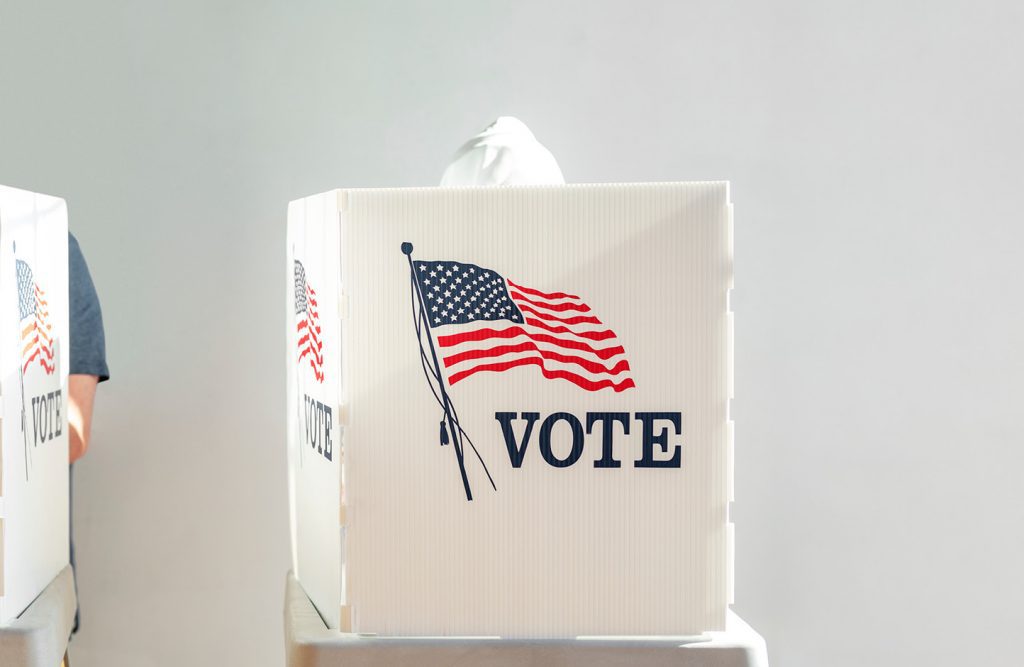

Voters in North Dakota and around the country are demanding election reform. While many other states are passing meaningful election bills, North Dakota legislators seem to be reluctant to make the sweeping changes that would be required to secure our processes.
The 2016 and 2020 general elections prompted an unprecedented level of distrust in our most important institutions. A November 13, 2016, Washington Post – ABC News poll showed that 33 percent of Democrats believed that the 2016 election was not won legitimately by President Trump. A December 7, 2020 Rasmussen Reports poll showed that 47 percent of respondents believed that it was likely that votes were stolen from President Trump, including 17 percent of Democrats and 28 percent of independents. We appear to have reached a point where confidence in an election result depends in large part on whether your preferred candidate won.
Whether you believe the fraud claims or not, the fact that nearly half the country believes it occurred should be of concern to all of us. There are efforts underway nationwide to complete forensic audits on a state-by-state basis to undercover issues. I support these efforts as a means to bring about a fundamental reset in the way that our elections are conducted.
Immediately following the 2020 election when it became apparent that there were issues in many states, I reached out to my good friend Rep. Jeff Hoverson to ask him to sponsor a comprehensive election reform bill in the ND legislature during the 2021 legislative session. Jeff graciously agreed and put me in touch with Legislative Council to work with us on drafting the bill text.
In my opinion House Bill 1312 (HB1312) was the most comprehensive of the 40-plus election bills submitted this session. Among many provisions, it primarily sought to do the following:
My testimony in the House Government and Veteran Affairs Committee focused on trying to help the committee members understand the gravity of the situation in the eyes of the public. I believe that the committee members understood, even if they didn’t agree with the remedies we were proposing.
Representatives of the Secretary of State’s office and from the ND Association of Counties provided testimony in opposition to the bill. Their testimony was that ND was among the best rated states in the country for election integrity. Essentially, nothing is wrong, so drastic measures are not needed.
The committee voted 12-2 to return the bill to the House floor with a “do not pass” recommendation. Representatives Jeff Hoverson and Jeff Magrum agreed with our approach, but unfortunately the other 12 members did not.
On the floor of the House the bill carrier stated that the bill was well intentioned, but did not make the cut of the 40-plus election bills submitted. Essentially, the reasoning was that the legislature decided 20-plus years ago that no excuse absentee and unlimited mail in voting were the right course and it was too hard to go back. The vote counting machines are secure, so no changes are needed. The entire house voted 86-7 to kill the bill.
In the end the primary election bill that was signed into law was HB1253. While this was a “comprehensive” election bill drafted by the Secretary of State’s office, it did very little to address any of the vulnerabilities in our election systems. It updated the language in many areas of century code, but made few substantive changes. What it did do is allow the legislature and governor to support a large election bill so they could show that they addressed the concerns of the public.
North Dakota elections still face the same vulnerabilities going forward that we had during the last two disputed elections. The legislature missed a significant opportunity to respond to the concerns of the public and bring real reforms. I believe we have the best approach to securing our election processes and bringing back public confidence in our institutions. We will continue to push for these reforms in future legislative sessions.